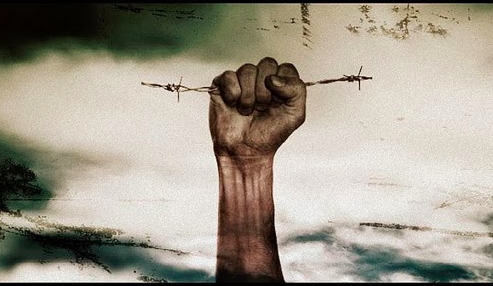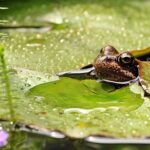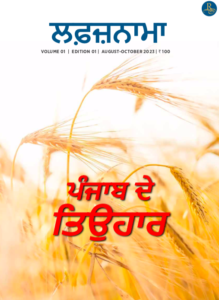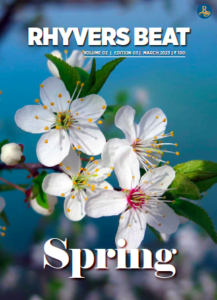Haiku Blossoms (10)
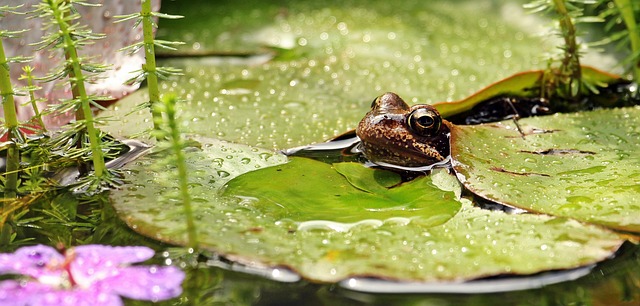
Matsuo Bashō—The Great Master of haiku (1644–1694)
Dear Readers in the last 9 episodes of Haiku Blossoms we have been discussing haiku and I am motivated to see the interest generated by this Japanese form of poetry. Many readers want to know more and are experimenting with penning haiku, still more are sharing these articles and also saving them future reference.
This week I would like to share about the great masters of haiku, foremost among them is Matsuo Bashō and his most famous haiku comes to mind:
*
an old pond
a frog leaps in
the sound of the water
*
R.H. Blyth in his book ‘Haiku’, Vol. 1, Section 4 writes “There are three great names in the history of haiku, Bashō, Buson and Issa; we may include a fourth, Shiki. Bashō, is the religious man, Buson the artist, Issa the humanist. Bashō is concerned with God as he sees himself in the mind of the poet before flowers and fields. If we do not begin with Bashô, our interpretation of haiku is bound to lack depth. The objectivity of Buson and the subjectivity of Issa both spring from the homely little man with long eyebrows and a bad digestion.
It is truer in Japanese poetry than in any other, that for the understanding of it we need to understand the poet. The Confucianist scholar Itô Jinsai said,
Where the teacher is, there is truth; respect for the teacher is respect for truth.
When therefore we come to Bashô, we do so because he is the Way, the Truth and the Life. Apart from human beings, there is no Buddha. In Bashô’s own words,
Do not follow in the footsteps of the Ancients; seek what they sought.
As with Wordsworth, piety was the foundation of both Bashô’s character and of his literary work. To him more than to any other oriental poet do the words of Gensei (a priest and tanka poet) apply;
By making faithfulness and filial piety the fundamental,
and giving literary work a secondary place, poetry is profound.
We may compare what Wordsworth says:
To be incapable of a feeling of poetry, in my sense of the word, is to be without love of human nature and reverence for God.
Bashô felt that life was not deep enough, not continuous enough, and he wanted to give every action, every moment the value that it potentially had. He wanted the little life we lead to be at the same time the greater life. Every flower was to be the spring, every pain a birth pang, every man a haiku poet, walking in the Way of Haiku.
It was the life of the little day, the life of little people. And the man who had died said to himself, “Unless we encompass it in the greater day, and set the little life in the circle of the greater life, all is disaster. (Lawrence, The Man Who Died)
What is this greater life, and how is the little life to be related to it? Or, to put the question in a more prosaic but more pertinent form, what is the social value of haiku? When we compare the life of Bashô especially, or of any other great haiku poet, with those of Wordsworth, Milton, Shelley, Keats, and so on, we are struck by one fact of seemingly little importance, that the Japanese haiku poets all had disciples; the English poets’ none. This is a matter of the greatest significance, for it is just here, in this religious attitude, that the little, prosaic life of little people may be set in the greater, the poetic life.
*
Winter seclusion:
Once again I will lean against
This post.
Bashô
*
Here, and here only, is the little life set in the circle of the greater, the ordinary in the extraordinary, the commonplace in the miraculous, the material in the spiritual, the human in the divine. To sit on the floor and lean one’s back against a post may not seem the acme of comfort, but this is the pleasure Bashô is promising himself. During the winter, while the snow is silently falling, he will lean against the post as he did last year, reading and writing poetry, thinking
Thoughts that wander through eternity,
through our eternity, through the greater life. This post, rubbed smooth with countless vigils, black where his head rested against it, is all he asks for.
The Way of Haiku requires not only a Franciscan poverty, but this concentration of all the energies of mind and body, a perpetual sinking of oneself into things. Bashô tells us, and it is to be noted, we believe him:
The autumn full moon:
All night long
I paced round the lake.
*
All night gazing at the moon, and only this poor verse to show for it? But it must be remembered that Bashô was a teacher. And thus we too, when we look at the moon, look at it with the eyes of Bashô, those eyes that gazed at that moon and its reflection in the placid water of the lake.
One of Bashô’s haiku which illustrates both this plain severity of life and his tender affection for his pupils is the following:
*
The beginning of spring:
For the new year,
Five-shô of rice from last year.
*
At Fukagawa, Bashô’s disciples, especially Sampu, brought him all the necessities of life. He had in the house a large gourd which would hold five shô (1 shô=3.18 pints=1.8 litres), The happiness of the New Year is the remembrance of the fidelity and affection of his pupils, symbolized in the rice remaining over from the year before. A similar verse is:
Putting on a silk garment that Ransetsu gave me for the New Year
*
The first morning of spring.
I feel like
Someone else.
*
Literally, “Whom do I look like?” Bashô’s lack of affectation is shown also in the following:
Answering Kikaku’s poem about tade (smart-weed) and the firefly
*
I am one
Who eats his breakfast,
Gazing at the morning-glories.
This was Bashô’s reply to:
A firefly;
I partake of the smart-weed,
In my hermitage.
Kikaku
*
Kikaku means that, like the firefly, he prefers the night, and has eccentric tastes, enjoying the bitter flavour of the smartweed that other people dislike. Bashô says that the true poetic life is not here, but in eating one’s rice and pickles for breakfast and gazing at whatever nature and the seasons bring us.
It would be just as hard to think of Bashô living in affluence or as even moderately well-off, as it would to imagine St. Francis a rich man. Bashô lived a life very similar to that of Meg Merrilies:
*
No breakfast had she many a morn,
No dinner had she many a noon,
And ‘stead of supper she would stare
Full hard against the moon.
*
Chora gives us a picture of Bashô,—how different from that of the average European poet:
*
In travelling attire,
A stork in late autumn rain:
The old master Bashô.
*
The first poem in the Nozarashi Diary shows us Bashô’s idea of the normal state of the poet, little different from that of the ascetic. The end proposed is not different from that ideal which Keats held up before himself, but the means are poles apart:
*
Resigned to death by exposure,
How the wind
Cuts through me!
*
Prepared to die by the roadside, he sets out on his journey. Why did he not stop at home, if not in comfort, at least out of the wind and rain? For several reasons. Without contact with things, with cold and hunger, real poetry is impossible. Further, Bashô was a missionary spirit and knew that all over Japan were people capable of treading the Way of Haiku. But beyond this, just as with Christ, Bashô’s heart was turned towards poverty and simplicity; it was his fate, his lot, his destiny as a poet.
*
The year-end fair:
I would like to go out and buy
Some incense-sticks.
*
The modesty of Bashô’s desires is evident in this verse. Nothing could be cheaper, or more cheerless, by ordinary standards. Bashô’s sympathy with animate things did not arise from any theory of the unity of life, nor from an innate love of living things. It was strictly poetic, and for this reason we find it partial and limited, but sincere. It springs, as is seen in the individual cases where it is expressed, from a deep experience of a particular case. Bashô was once returning from Ise, the home of the gods, to his native place of sad memories. Passing through the lonely forest, the cold rain pattering on the fallen leaves, he saw a small monkey sitting huddled on a bough, with that submissive pathos which human beings can hardly attain to. Animals alone possess it. He said:
*
First winter rain:
The monkey also seems
To want a small straw cloak.
*
He was preserved from any sentimentality about animals by the fact that his own life was full of discomfort, which he saw as inevitable, and, in a sense, desirable.
The gentleness of Bashô, (who was a samurai by birth) is a very special quality. We may perhaps compare him to Chaucer, of whom Thoreau says:
We are tempted to say that his genius was feminine, not masculine. It was such a feminineness, however, as is rarest to find in woman, though not the appreciation of it; perhaps it is not to be found at all in woman, but is only the feminine in man.
Bashô was not a great poetical genius by birth. During the first forty years of his life he wrote no verse that could be called remarkable, or even good. Unlike his contemporary Onitsura, who was mature at twenty five, Bashô made his way into the deepest realm of poetry by sheer effort and study, study here meaning not mere learning, but a concentration on the spiritual meaning of the culture he had inherited in haikai. Indeed, we may say that few men have been so really cultured as Bashô was, with his understanding of Confucianism, Taoism, Chinese Poetry, Waka, Buddhism, Zen, Painting, the Art of Tea. In Oi no Kobumi, he writes:
*
Saigyô’s waka, Sôgi’s renga, Sesshu’s painting,
Rikyu’s Tea,—the spirit animating them is one.
*
When all is written that can be written, and all is done that can be done, it may be found that Bashô was not only the greatest of all the Japanese, but that he is to be numbered among those few human beings who lived, and taught us how to live by living.
More about Bashō from Chapter 8 of ‘History of Haiku, ‘ Vol. 1.
Bashō’s verses are comparatively few in number, about two thousand in all, of which about a hundred are really good, but one thing that strikes us about them is their variety. We can see in his verses the tendencies which later poets developed.
Epic
The autumn blast
Blows along the stones
On Mount Asama.
Chinoiserie
The bed-clothes are so heavy,
The snow of the sky of the Kingdom of Wu
Will soon be seen.
Still Life
In the fish-shop
The gums of the salted sea-bream
Are cold.
Unconventionality
Lead my horse
Across the moor
To where the hototogisu is singing!
Humour
The lady-cat,
With love and barley-rice
So thin!
Picturesqueness
First winter rain,—
Enough to turn
The stubble black.
Delicacy
Wrapping rice dumplings in bamboo leaves,
With one hand she fingers
The hair over her forehead.
When we call Bashō the greatest of the (haiku) poets of Japan, it is not only for his creation of a new form of human experience, and the variety of his powers, illustrated above. He has an all-round delicacy of sympathy which makes us near to him, and him to us. As with Dr Johnson, there is something in him beyond literature, above art, akin to what Thoreau calls homeliness. In itself, mere goodness is not very thrilling, but when it is added to sensitivity, a love of beauty, and poetry, it is the irresistible force which can move immovable things.
It is evening. Bashō is on a journey, his last; half a month later he will be dead.
*
This autumn,—
Old age I feel,
In the birds, the clouds.
*
Hope you enjoy reading about Bashō, there is much to learn from his writings especially about his travels. My favorite book of Matsuo Basho is The Narrow Road to the Deep North and other Travel Sketches. When he composed it, he was an ardent student of Zen Buddhism, setting off on a series of travels to strip away the material world and bring spiritual enlightenment. He wrote of the seasons changing, of the smell of rain, the brightness of the moon and the beauty of the waterfall.., through which he sensed the mysteries of the universe. These 17th century travel writings not only chronicle Bashō’s perilous journeys through Japan, but they also capture his vision of eternity in the transient world. Next week we will discuss Issa, another great master.
References:
Blyth, R. H., “Haiku – Volume 1,” The Haiku Foundation Digital Library, Book Published by Hokuseido, 1951
Blyth, R. H., “A History of Haiku Volume One,” The Haiku Foundation Digital Library, Book published by Hokuseido Press, 1963
Blyth, R.H. The Genius of Haiku, Readings from R.H. Blyth, Published by British Haiku Society, 1994



